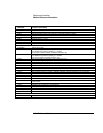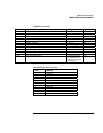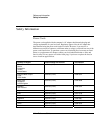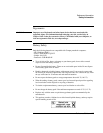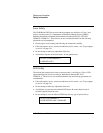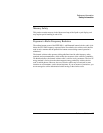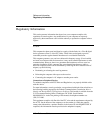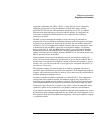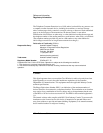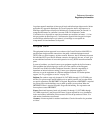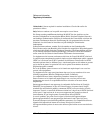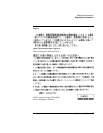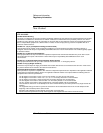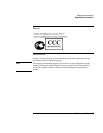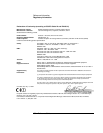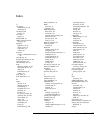
Reference Information
Regulatory Information
The Telephone Consumer Protection Act of 1991 makes it unlawful for any person to use
a computer or other electronic device, including fax machines, to send any message
unless such message clearly contains in a margin at the top or bottom of each transmitted
page or on the first page of the transmission, the date and time it is sent and an
identification of the business or other entity, or other individual sending the message and
the telephone number of the sending machine or such business, other entity, or individual.
(The telephone number provided may not be a 900 number or any other number for
which charges exceed local or long-distance transmission charges.)
Declaration of Conformity (U.S.A.)
Responsible Party: Hewlett-Packard Company
Manager of Corporate Product Regulations
3000 Hanover Street
Palo Alto, CA 94304
+1 (650) 857-1501
declares that the product(s)
Trade name:
Hewlett-Packard Company
Regulatory Model Number:
CRVSA-02T1-75
Complies with Part 15 of the FCC Rules. Operation is subject to the following two conditions:
1. This device may not cause harmful interference, and
2. This device must accept any interference received, including interference that may cause undesired
operation.
Canada
This digital apparatus does not exceed the Class B limits for radio noise emissions from
digital apparatus as set out in the radio interference regulations of the Canadian
Department of Communications. This equipment meets the applicable Industry Canada
technical specifications.
The Ringer Equivalence Number, REN, is an indication of the maximum number of
devices allowed to be connected to a telephone interface. The termination on an interface
may consist of any combination of devices subject only to the requirement that the sum
of the RENs of all devices does not exceed five. The REN for this terminal equipment is
1.0.
The internal wireless radio complies with RSS 210 of Industry Canada. To prevent radio
interference to the licensed service, this device is intended to be operated indoors and
away from windows to provide maximum shielding. Equipment (or its transmit antenna)
that is installed outdoors is subject to licensing.
150 Reference Guide



